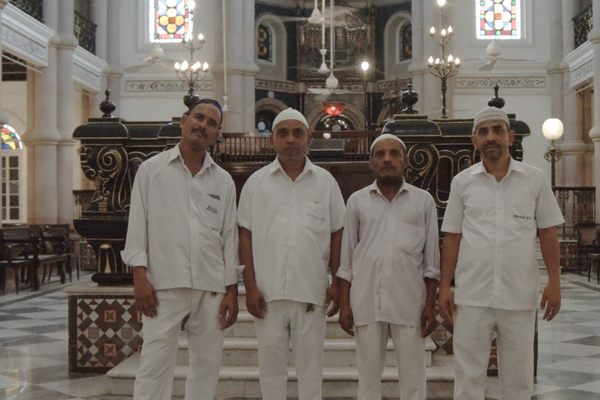Pastafarianism is Not a Legally Recognized Religion in the U.S.
The Nebraska ruling is a small setback as the movement expands its noodly reach.

Touched By His Noodly Appendage, Niklas Jansson, 2008. (Image: Niklas Jansson/Public Domain)
Generally, American law protects prisoners’ rights to exercise their religious beliefs. However, that protection relies on the courts agreeing that your beliefs constitute a religion. Unfortunately for Nebraska inmate Stephen Cavanaugh, a U.S. District judge ruled this week that his religion of choice, Pastafarianism (also known as, and referred to in court documents, as FSMism) does not qualify for Constitutional protection.
Judge John Gerrard provides a great primer on Pastafarianism for the unfamiliar:
FSMism is a riposte to intelligent design that began with a letter to the Kansas State Board of Education when it was considering intelligent design. See, Bobby Henderson, The Gospel of the Flying Spaghetti Monster 111-13 (2006) (FSM Gospel). The primary criticism of intelligent design—and the basis for excluding it from school science classes—is that although it purports to be “scientific,” it is actually “an interesting theological argument” but “not science.”
The conceit of FSMism is that, because intelligent design does not identify the designer, its “master intellect” could just as easily be a “Flying Spaghetti Monster” as any Judeo-Christian deity—and, in fact, that there is as much scientific evidence for a Flying Spaghetti Monster as any other creator. See FSM Gospel at 3-4. 1 As the FSM Gospel explains, “[w]e are entering into an exciting time, when no longer will science be limited to natural explanations. . . . Propelled by popular opinion and local government, science is quickly becoming receptive to all logical theories, natural and supernatural alike.”
Based on this history, prison officials—and later, the court—not unreasonably determined that Pastafarianism is more satire than religion, and denied Cavanaugh such religious practices as wearing a pirate costume instead of his prison jumpsuit. But this particular cut-and-dry case belies Pastafarianism’s status worldwide.
Since its introduction in 2005, the mythology of Pastafarianism has grown to encompass pirates, an afterlife with a beer volcano, and more. There is, of course, a snazzy orientation video to welcome you into the Flying Spaghetti Monster’s noodly arms:
Spaghetti, Wenches & Metaphysics: Episode 1—The FSM from Matt Tillman on Vimeo.
In fact, Pastafarianism is an officially recognized religion in three countries—first in Poland, where it became an officially registered religious community in 2014 thanks to a legal technicality, then in the Netherlands this past January. And just this weekend, New Zealand recognized the first legally-binding Pastafarian wedding, officiated by “minestroni” Karen Martyn. The happy couple were wed in the customary pirate’s garb, and Martyn is ready to perform additional ceremonies for any legally eligible adults, explaining to the BBC, “I’ve had people from Russia, from Germany, from Denmark, from all over contacting me and wanting me to marry them in the church because of our non-discriminatory philosophy.”
In Czechia and Lubbock, Texas, Pastafarians have been allowed to wear their traditional headdress—a colander—in state ID photos, according to the New York Daily News. Actually, getting permission to wear a colander in official photos is one of the adherents’ favorite evangelical strategies, judging by posts on the official site and elsewhere. Basically, this goofy-sounding belief system is full of enthusiastic followers who are eager to see their religion legitimized.
Will Pastafarianism’s religious status be debated by the Supreme Court any time soon? Cavanaugh and his legal team have not indicated publicly that they intend to appeal the District Court’s ruling, but some Pastafarians are calling for further action. Right now, we’ll have to wait and see—but if past efforts are any indication, we might be taking Pastafarianism a lot more seriously in the future.













Follow us on Twitter to get the latest on the world's hidden wonders.
Like us on Facebook to get the latest on the world's hidden wonders.
Follow us on Twitter Like us on Facebook